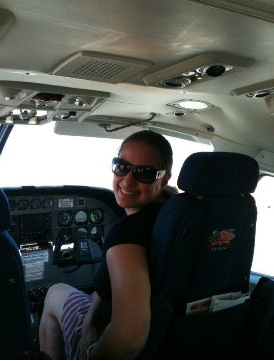Having bipolar disorder presents a myriad of challenges for anyone, regardless of their career path. There is no line of work in which stressful situations are entirely avoidable. Sometimes, you have to try to “look normal” (whatever that means) on days when it feels like the ground is falling out from underneath your feet. However, being a professional poker player with bipolar disorder, who spent months every year on the road, presented a unique set of challenges because I couldn’t always take my support system on the road or to the airport with me.
• What is Bipolar disorder?
Even world-class players who are relatively mentally healthy sometimes buckle under the pressure built into the lifestyle of gambling for a living. Poker was my primary source of income for six years. In that time, I experienced both incredible triumphs and crushing disappointments as I walked the tightrope with my sanity (and sometimes my life) hanging in the balance.
When I was 25, I went to Las Vegas to play in the World Series of Poker for the first time, and I was beyond thrilled. It’s a dream come true for even a casual player, and as I packed my suitcase, I fantasized I’d be featured on ESPN holding my winner’s bracelet aloft and grinning for the cameras as I was surrounded by dozens of friends.
There was just one problem: I knew nobody in Las Vegas. What if something happened? What if everything went terribly wrong? Who could I talk to if I needed a friendly ear and a hug? But I wasn’t about to let anything stop me from what I knew would be the experience of a lifetime, including these concerns. I felt a slight surge of hypomania as I boarded my flight, since that was the moment it all finally felt real.
The Rio All-Suite Hotel and Casino was a veritable beehive of activity. I found myself rubbing elbows not only with the professional players I’d always admired but with actors, models and athletes. The hypomania which made a cameo on the plane began to snowball. When I took my seat for the tournament and started to play, I could feel my heart beating out of my chest and did my utmost to calm myself down.
“Just relax and play like you do at home,” I repeated in my head, but it was easier said than done. The combination of my mania and nerves got the better of me and caused me to play recklessly. Unsurprisingly, I lost. I was not accustomed to losing.
It would have been so easy for me to spiral downward into depression after a huge letdown like that. Every day of every tournament each year at the World Series of Poker, I’m sure someone leaves the casino in tears, but that day it wasn’t me. Although I felt wired and alone when I first arrived and incredibly disappointed I wouldn’t be bringing a championship title and buckets of money back home to my friends, family and newfound adoring fan base, I remembered the coping skills I’d worked so hard to hone with my therapist back on the east coast.
The first thing I did was pick up the phone. I called my friends and my boyfriend and talked honestly about how I was reacting to the loss. Every single one of them proved to be an amazing sounding board. Although they were thousands of miles away, I felt like all of them were right there with me. They encouraged me to be kind to myself. Go to a nice restaurant, see a show and maybe get a massage (but really, always, always, always get a massage.) I went to the pool with a book. I rented a Mustang and drove through the desert to the Grand Canyon.

Only about two days later, I was feeling totally symptom-free, and I was able to play poker again. I ended up doing well. I was overjoyed at having fended off what could have been a potentially disastrous episode. Although I have a new career I couldn’t love more, I remember my first trip to Las Vegas with an incredible sense of pride. On any given day, beating bipolar disorder is so much more satisfying that beating a card game.
Image via Thinkstock.

